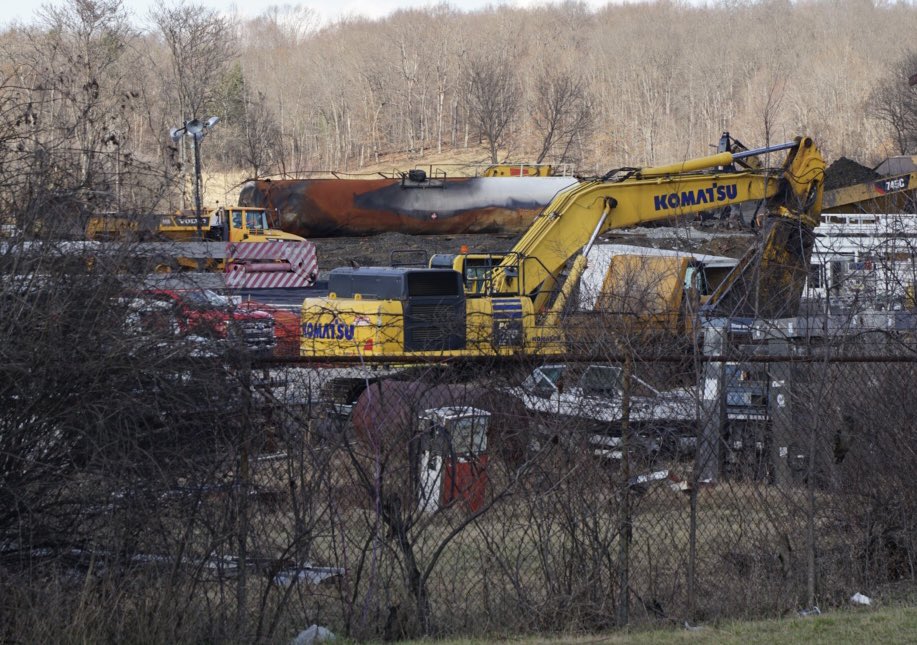U.S. Sen. Shelley Moore Capito says Congress will pass a rail safety bill, but there’s not enough time to do it this year.
Nearly 10 months after a train derailment resulted in a release of toxic chemicals in East Palestine, Ohio, Congress has still not moved forward with legislation.
Capito, a member of the Senate Commerce, Science and Transportation Committee, says some areas of disagreement remain on the bill the committee approved earlier this year. She voted no.
With government spending bills on the line, border security, as well as support for Ukraine and Israel, the issue has fallen down the list of lawmakers’ priorities.
Capito says the differences can be worked out and predicts a bill will pass.
“I would say it’s going to be happening,” she said. “It happens next year.”
The Feb. 3 Norfolk Southern derailment was traced to a broken wheel bearing. Thousands were evacuated from the small town near the Pennsylvania border, and emergency response teams from three states came to fight the fire.
The railroad made the decision to vent and burn cars full of vinyl chloride, resulting in plumes of thick, black smoke that darkened the sky. The incident generated nationwide attention, and angry lawmakers brought Norfolk Southern CEO Alan Shaw in front of Congress to testify.
The legislation Congress is considering would require more safety inspections, automated defect detectors, improved training for first responders and notification of hazardous materials shipments to local officials. A provision requiring a minimum crew size of two is part of the dispute. The train in East Palestine had three crew members on board.
